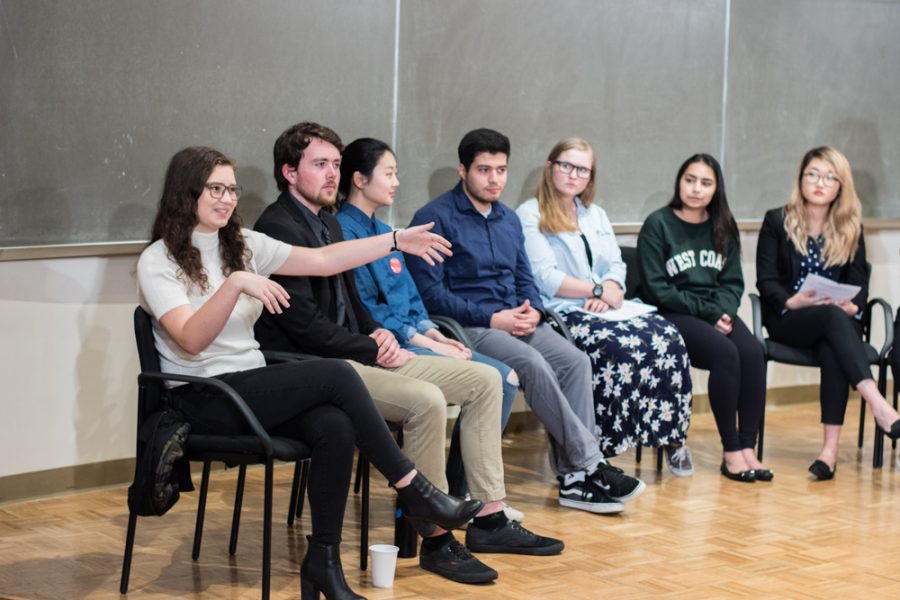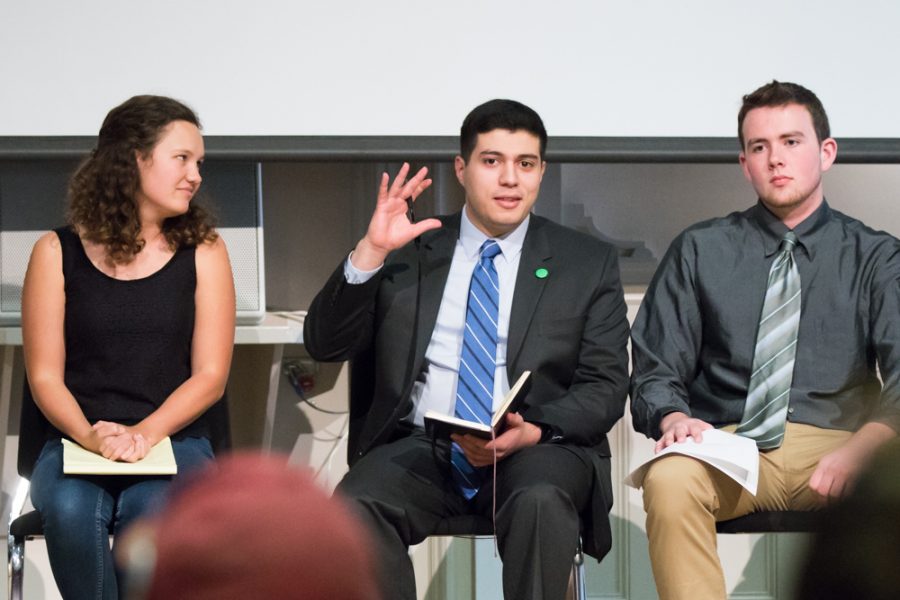There was palpable tension in the air as each senator cast his or her vote. In the end, the ASWC Senate failed to reach the necessary two-thirds majority required to advance a funding request of over 1,000 dollars to bring back The Waiilatpu, Whitman College’s former yearbook. After nearly three hours of deliberation that dragged late into the evening of January 30 the official vote was 10 in favor and nine against.
The funding request was for 15,232 dollars from the Travel and Student Development fund, which would have reduced the fund’s current total to 3,479 dollars.
According to ASWC Finance Chair junior Matt Dittrich, this is the largest proposal ever made to the Travel & Student Development fund.
A strong contingent of yearbook staff members attended the Senate meeting. A lengthy proposal showed the clear devotion of those involved in the project and was well received by everyone in attendance.
There was some concern from senators that the proposal would indirectly take away money from club sports, which it was thought might use the fund to cover travel costs. However, as stated by Dittrich during the meeting, the proposal would not have affected club sports teams’ budgets as club sports have a separate fund from which to finance travel.
The yearbook proposal covered printing costs of 250 copies of a hardback yearbook, which would have been available to purchase through student accounts and distributed in May. The projected prices of the yearbook for students ranged from 25-35 dollars, not including staffing costs. The cost of producing each yearbook was 53.19 dollars.
The amount of money requested by the yearbook staff was repeatedly brought up during the deliberation, and many senators expressed concerns over how the large amount of money would benefit the majority of students.
“In my mind, there was no set case that would make it come back and make it justifiable to be spending that much money to only be affecting 250 students, assuming that many people bought it,” said first-year ASWC senator Kayvon Behroozian. “A lot of student feedback that we heard before and after was that they would rather have that money available for making memories than preserving memories.”
In order to trim down the total amount the yearbook staff was requesting, the staff offered to forfeit stipends until after the books had been sold.
Different concerns that senators raised included the fact that the money requested only covered production costs for this semester and did not create any precedent to fund a yearbook for subsequent years. Discussion also arose over where the yearbook would be designed, as the Reid Campus Center News Room is currently being used by both the yearbook and The Pioneer.
Other senators who were in favor of the yearbook proposal argued that the project presented a new opportunity for student development outside of the classroom.
In a survey the yearbook staff conducted 76 percent of the 451 respondents were in support of having a yearbook. However, a criticism brought up at the Senate meeting was that the survey failed to mention the amount of money required by ASWC to create the yearbook.
Over the course of the meeting, senators and yearbook staff members discussed possible amendments to the original proposal, including the possibility of distributing a yearbook in PDF format. The PDF yearbook was unacceptable to the yearbook staff, who called it a “mockery” of their work.
Sophomore Ben Lerchin, a student leader of the project, is currently looking into multiple options, including publishing the yearbook in a cheaper paperback format.
“It will probably be within the seven to 11 thousand dollar range,” Lerchin said of the new proposal.
The number of books to be produced remains unclear, as well as where the books will be published, both of which are key components of cost.
“There’s an online company we are looking at. If I can actually connect with a real person we will probably go with that,” Lerchin said.
The next ASWC Senate meeting will be held Sunday, Feb. 13, and the yearbook staff plans to make its new proposal to the Finance Committee and get on the agenda to discuss their new, lower-cost proposal.
“I think right now, the senators are feeling like people want a yearbook, and they’re just worried about the cost that was high enough deplete the fund,” Lerchin said. “If we can get it somewhere close to not depleting that fund I think they’re going to be more comfortable with that.”








